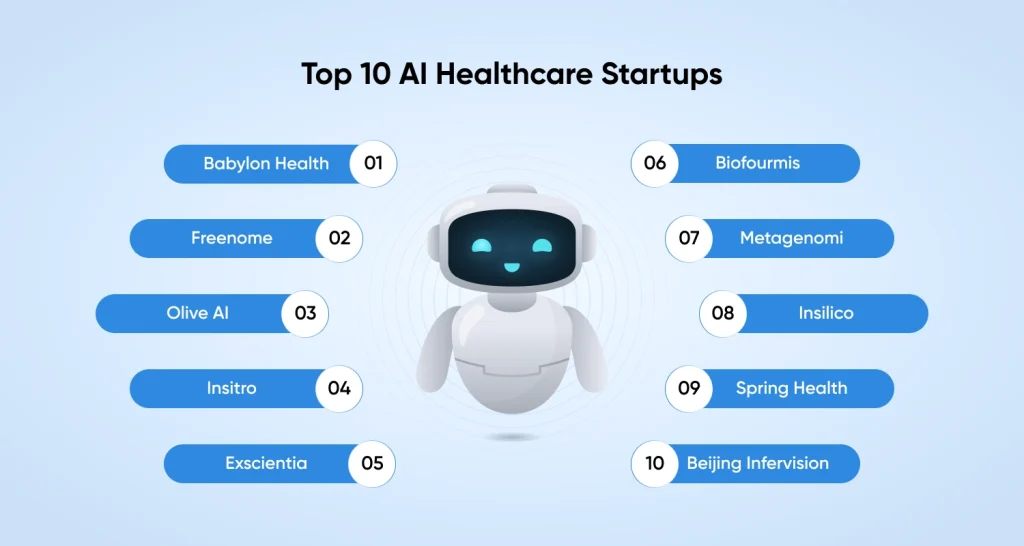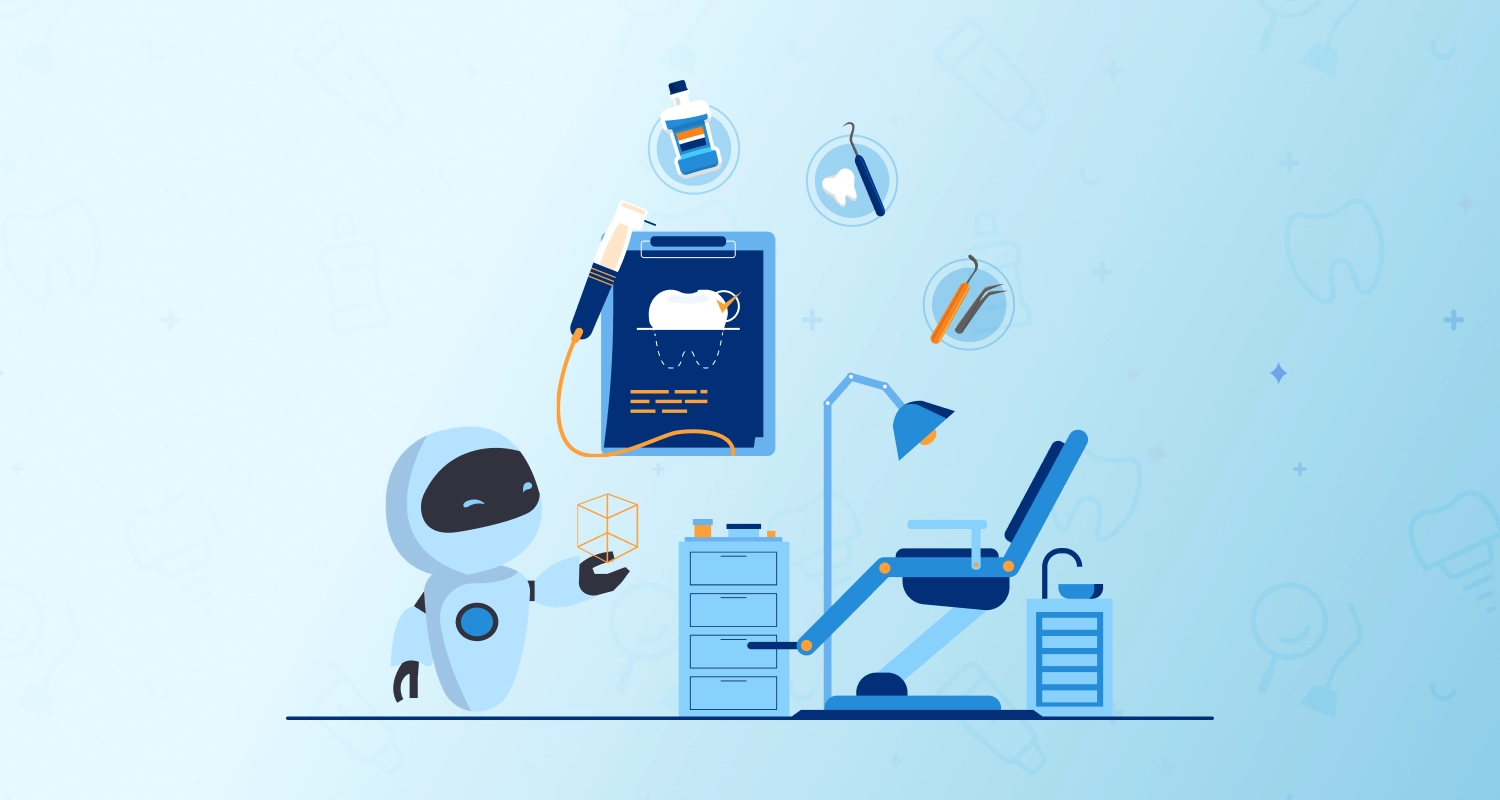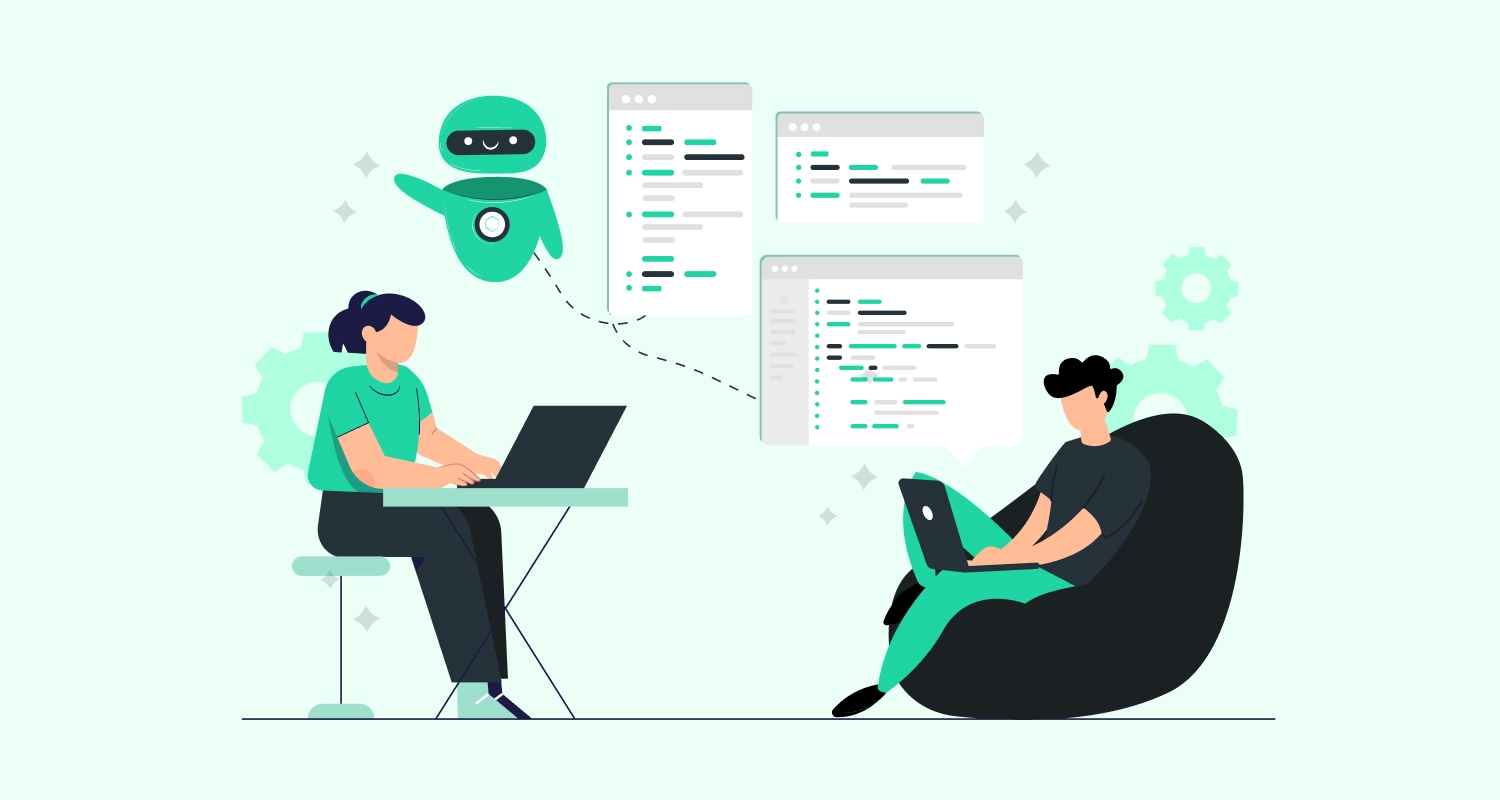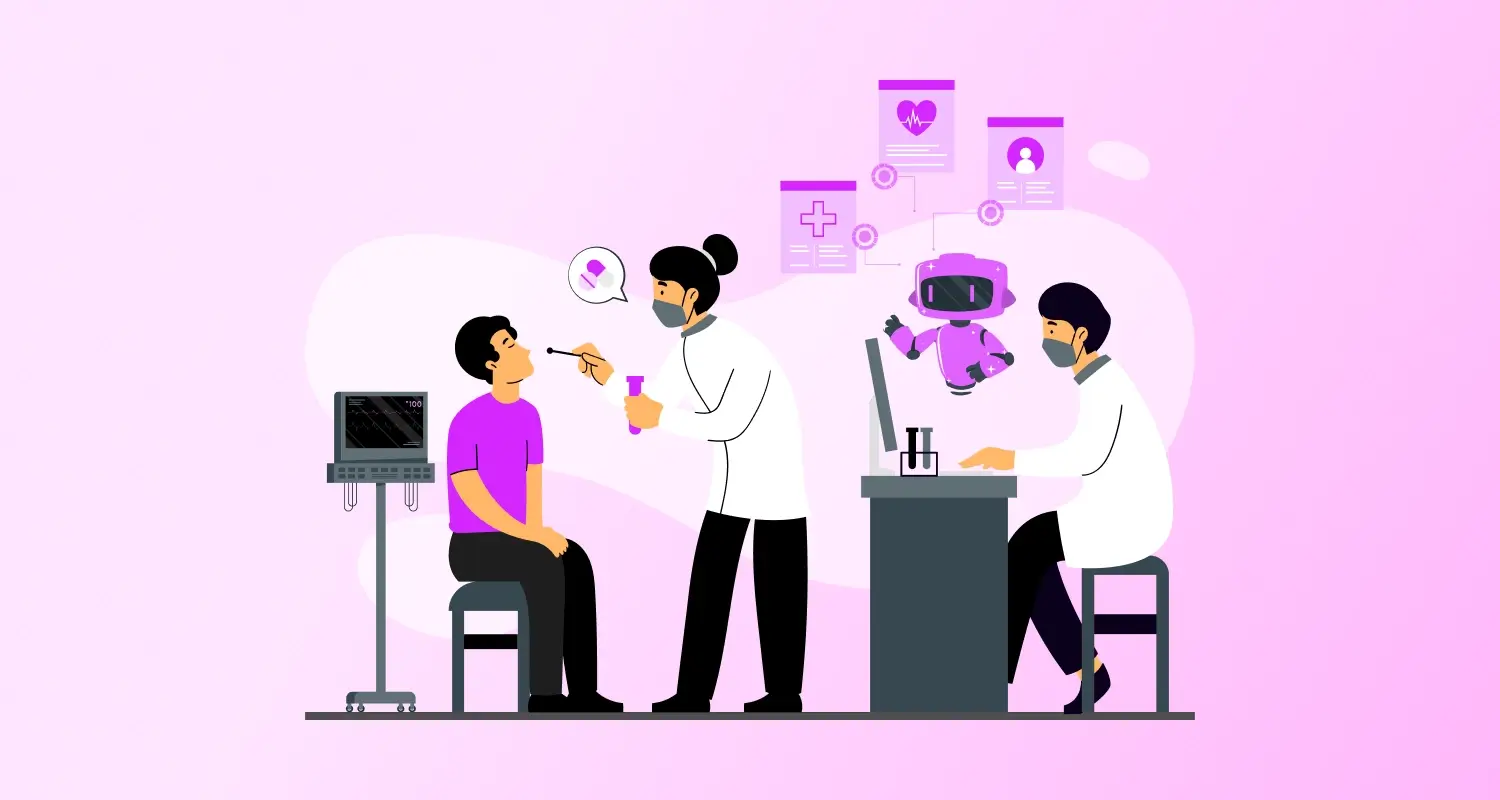AI is revolutionising healthcare in a subtle but profound way. This technology is changing healthcare, and it is not just a fad.
AI in healthcare start-ups are spearheading this new era of medical innovation. These firms are revolutionising healthcare by delivering science fiction-like solutions.
AI is advancing healthcare in areas like customised treatment regimens and predictive diagnosis. The goal of these developments is only to improve patient care and outcomes. Will AI Eventually Displac UX Designers? Expands on the idea that AI’s processing and analysis capabilities are increasing efficiency. However, it is also leading to novel approaches to diagnosis and therapy.
AI’s Importance in Healthcare
AI’s capacity to turn data into insights has a major impact. AI can interpret the complex healthcare system, where each patient’s journey is unique. One of our recent papers, AI Tools for Recruiting, delves further into how AI enables better-informed judgements through pattern analysis and outcome prediction. Personalised treatment plans and early detection of health problems are important goals of healthcare companies.
Additionally, DeepMind’s work in identifying eye disorders and making advanced diagnostics and treatment plans more available to a larger audience demonstrates how AI democratises healthcare by breaking boundaries. When healthcare resources are few, this becomes even more important in neglected areas. Discussing AI-powered Healthcare Software Development Solutions can close these gaps and make high-quality healthcare a universal right, not a privilege.
It is critical to remember that this is only the start as we approach the end of an age in healthcare driven by artificial intelligence. AI’s potential in healthcare is still untapped, but it’s been a great ride. AI healthcare enterprises are leading to efficient, effective, and egalitarian healthcare.
Top 10 AI Healthcare Startups

Every day, more and more AI software development services pop up, demonstrating the fast growth of AI in healthcare. In terms of investment, innovation, and potential influence on the industry, these ten artificial intelligence healthcare firms are worth keeping an eye on through 2025 and beyond:
1. Babylon Health
Top medical tech startup established in the UK offers virtual healthcare consultations powered by artificial intelligence (AI). Patients can order drugs, make appointments, and speak with nurses and doctors on cellphones. Over $1.2 billion raised, Babylon is worth $4 billion.
2. Freenome
In the United States, using conventional methods, an AI-driven business uses blood test analysis to diagnose cancer, heart disease, and other diseases five years ahead of time. Freenome has amassed an astounding amount of over $2.1 billion, with over $1.1 billion coming from investment alone and valued at $5 billion+. You can Hire Dedicated Developers to create an AI Healthcare start-ups.
3. Olive AI
Hospitals and insurers can save time and money with Olive AI’s AI-powered automation of healthcare administration chores, including claims processing and prior authorisations. Olive AI is situated in the US. They are worth over $2 billion and have received more than $902 million in investment.
4. Insitro
Using machine learning to sift through millions of potential candidates, the American pharmaceutical discovery and development platform Insitro uses artificial intelligence to speed up drug research and development. At their present valuation, which exceeds $1 billion, they have garnered approximately $743 million from investors.
5. Exscientia
The United Kingdom is home to Exscientia, an artificial intelligence medicine development firm. They have raised around $474 million in funding since their establishment and are currently valued at $400 million+. Their technology generates 3D models of proteins to mimic medication interactions.
6. Biofourmis
The Singaporean startup Biofourmis employs AI to keep tabs on people with long-term health issues from afar. Their software uses artificial intelligence to detect potential issues by collecting data from sensors and wearable devices. At its valuation of over $1 billion as of September 2017, Biofourmis had garnered $463 million in capital.
7. Metagenomi
American business Metagenomi uses AI to find microbiome-based drugs. This collection of bacteria and other organisms in our bodies is crucial to good health and sickness. With $457 million in investment, Metagenomi is valued at over $500 million.
8. Insilico
Hong Kong-based AI-powered medicine discovery business Insilico Medicine. Their method predicts adverse effects by simulating drug-cell-tissue interactions in 3D models. Their valuation is above $300 million, and they have garnered approximately $401 million in the capital throughout the past four years.
9. Spring Health
The American startup Spring Health uses artificial intelligence to pair those in need with qualified medical professionals. Its software searches through information from insurance claims to find the most qualified to treat particular ailments. With a current worth of over $1 billion, they have successfully raised $366 million in investment.
10. Beijing Infervision
An AI medical technology startup established in Beijing, China, Beijing Infervision aims to improve human life through AI. Screening, diagnosing, intervening, treating, managing patients, and doing medical research are its areas of expertise in artificial intelligence solutions. In addition to servicing over a thousand medical institutions in more than 25 countries, Infervision has published over 110 SCI/Peer Reviewed Papers and obtained over 370 patents.
Many more innovative AI Healthcare Startups like these are changing the game globally. We should expect additional advancements in healthcare breakthroughs as AI technology progresses.

The Impact of AI-Powered Healthcare Innovations
Healthcare entrepreneurs are revolutionising patient care, diagnosis, and treatment with AI. These emerging firms are revolutionising healthcare with AI-powered diagnostics, customised drugs, and operations.
Some important domains where AI is having a noticeable effect are:
Diagnostics
Some startups are using Healthcare Technology Trends to diagnose faster and more accurately. Pieces Technologies evaluates patient data to accurately and quickly diagnose and cure complex diseases like cardiovascular and neurological ailments. While helping with symptom analysis and initial diagnosis, Ubie speeds up the diagnostic procedure and patient care.
Individualised Health Care
By sifting through mountains of patient data, AI healthcare entrepreneurs are transforming the practice of personalised medicine. By eliminating the need for a cookie-cutter approach and instead developing a specific strategy for each patient, this analysis reveals patterns and correlations that pave the way for personalised treatment programmes.
Predictive Analytics
One more noteworthy breakthrough is the evolution of AI algorithms used in predictive analytics. Early therapies using these algorithms can alter the course of diseases like Alzheimer’s and decrease healthcare expenditures in the long run by improving patient outcomes and predicting possible health risks.
Healthcare Operations
Medical AI startups enhance healthcare operations by better organising and analysing massive amounts of data, such as medical records and insurance claims. Reducing red tape helps healthcare providers concentrate more on providing direct patient treatment while enhancing the patient experience.
Global Reach
With the ability to diagnose and treat patients remotely, AI startups in healthcare are especially useful in areas with few medical facilities. This makes high-quality healthcare more accessible, reducing health inequities between rich and poor areas.
Several medical image analysis companies demonstrate how AI makes healthcare more accessible, customised, and precise. AI is already vital to healthcare and will only grow as technology advances.
Difficulty with AI in Healthcare Integration
Data Privacy and Security
This is a major concern regarding the security and privacy of patient data regarding AI systems. The risk of breaches or misuse is growing as healthcare AI startups require enormous access to sensitive health data. Protecting patient information while complying with rules like HIPAA requires hospitals and medical organisations to employ appropriate cybersecurity solutions.
Interoperability and Data Standardization
To make AI genuinely useful, there must be a concentrated push towards harmonisation across different healthcare platforms. This is necessary since AI can be hindered by a lack of standardisation in health data formats and concerns about interoperability between healthcare systems.
Legal and Ethical Factors to Think About
To apply AI Technology in Healthcare on a large scale, it is crucial to solve the legal and ethical challenges that arise from decision-making and holding AI systems accountable for diagnostic or treatment failures.
Skill Gap and Training
Healthcare workers need to prepare for AI. Healthcare personnel must learn to use and understand AI data to benefit.
Integration with Legacy Systems
A major obstacle is integrating AI technology with preexisting legacy healthcare IT systems. These older systems may need to be customised or upgraded to interface with newer AI technologies to improve patient care and operational efficiency.
Future Healthcare AI Trends and Predictions
Healthcare is fast evolving with AI. According to various estimates and trends, AI integration and growth will transform the healthcare environment. A sneak peek into the future:
Forecasting Medical Treatment
Algorithms that use patterns in patient data to anticipate possible health problems before they become critical will be a big part of AI’s predictive healthcare. Healthcare systems would experience less strain, and patient outcomes would improve due to this shift towards preventative care.
Expansion of Telemedicine
AI will boost telemedicine, enhancing distant healthcare, especially in underserved areas. AI-powered virtual assistants and diagnostic tools could make remote healthcare more effective and accessible.
Medical Imaging with AI
AI will be crucial to medical imaging. Advanced algorithms can interpret medical images faster and more precisely, detecting cancer earlier and reducing the need for radiologists to screen.
Personalized Drug Development
Because AI can process complicated biological data more rapidly, allowing for more tailored and effective medication treatments while decreasing the time and money needed to bring new medications to market.
Wearable Health Tech
Wearable health technology is expected to gain market share as artificial intelligence develops. In addition to tracking fitness measures, wearable health equipment with AI integration will monitor crucial health markers, giving healthcare practitioners real-time data for ongoing patient monitoring.
AI Ethics and Governance
Ethical norms and governance frameworks must address bias, transparency, and accountability to ensure the proper use of artificial intelligence in healthcare.
Better Health Outcomes for Patients
AI will revolutionise patient care with more tailored interactions. Artificial intelligence healthcare companies can help healthcare practitioners design tailored treatment plans and chatbots for each patient.
Equity in Global Health
AI could transform global health disparities. AI could provide global access to high-quality healthcare through scalable, cost-effective solutions.
Artificial Intelligence will make healthcare more predictive, customised, and accessible. AI can improve patient care and transform medical research in healthcare.
Conclusion
The use of AI in healthcare is not just a fad; it is a constant revolution altering healthcare delivery and the limits of what medical treatment can do, as we have seen. At its core, top AI healthcare startups offer state-of-the-art solutions to improve the precision, personalisation, and accessibility of medical care; this is not only about changing the boundaries of what medicine can accomplish but about increasing them.
Frequently Asked Questions
How Does Your AI Technology Contribute to Healthcare Improvement?
When given a chance to analyse training data, AI algorithms improve the systems, which in turn helps people gain unprecedented insights into treatment variability, care processes, diagnostics, and patient results.
What Benefits Can Healthcare Providers Expect by Adopting Your AI Solutions?
AI can assist service providers in collecting, storing, and analysing this data, allowing them to draw data-driven conclusions from large populations. By utilising this data, healthcare providers can improve disease management and treatment.
Are There Any Ongoing Maintenance or Upgrade Requirements for Your AI Solutions?
Constant maintenance is essential to keep AI models up-to-date and successful over time. According to Accenture, the ongoing support and maintenance expenditures for AI technologies can be 20% to 50% of the initial deployment costs.
What Future Developments or Innovations Can We Expect from Your AI Healthcare Startup?
AI can enhance personalized healthcare by utilizing genetic tests, clinical data, and health records. Regarding healthcare, startups are turning to machine learning for precise insights to aid in early disease identification and focused drug discovery.







